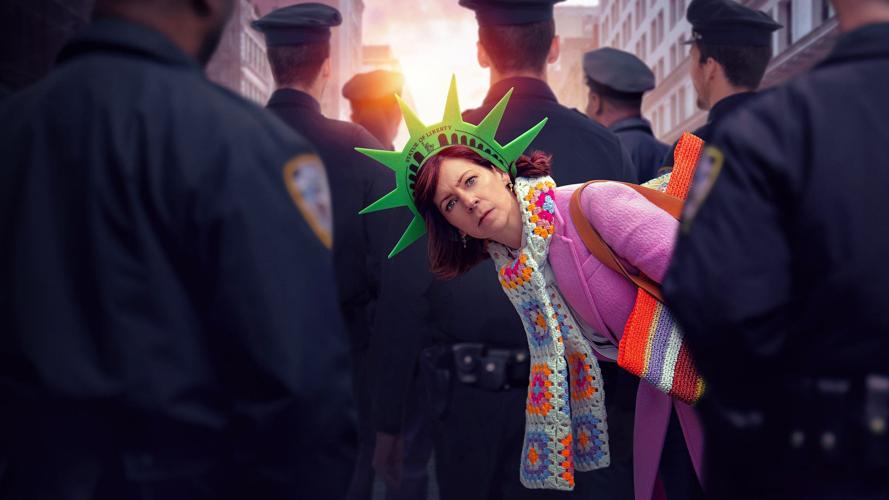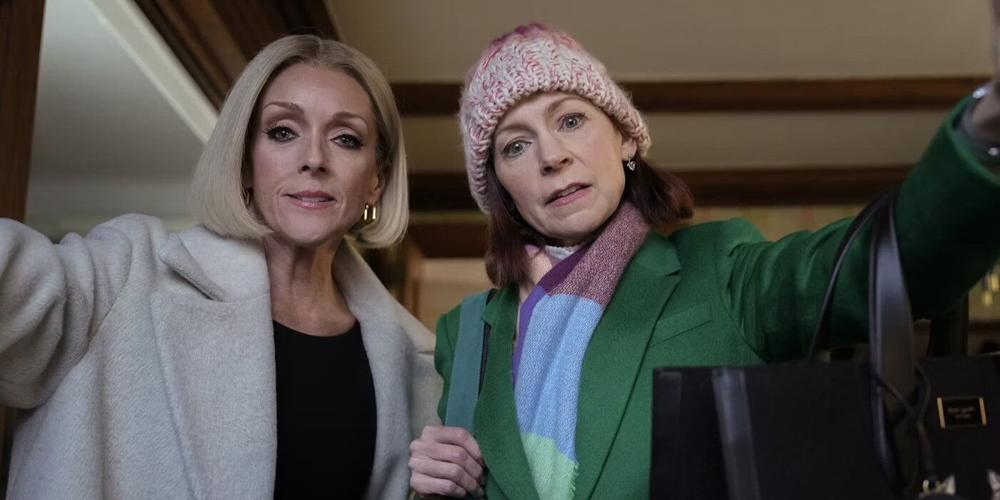Carrie Preston won an Emmy for playing the character of Elsbeth Tascioni in The Good Wife (2009), a legal drama that also tackled politics. Elsbeth was not a regular character. Preston was simply a guest star who popped up every now and then. The character was so popular that the show kept bringing her back. The character even appeared in the spinoff The Good Fight (2017). Elsbeth was a very quirky attorney who was often hired to represent other lawyers who got into trouble or sometimes represent politicians who got into trouble with the government. She was a very sharp and very creative lawyer with certain ticks that made her off-putting to most people. Yet, she was always polite and generally always cheerful. She was in a lot of ways the perfect comic relief to all the legal and political drama on The Good Wife, and worked in the small doses we got of her. This series tests the limits of having her dominant for whole episodes. Would this show be too much of a good thing?
For this second spinoff for The Good Wife, this show is no longer a legal drama, meaning there are no courtroom scenes or any scenes approaching the actual halls of justice. As the show progresses, this might change. Only the first, three episodes have aired thus far. This show seems to be mostly a police procedural program. We're no longer following lawyers. We're following cops. As such, Elsbeth is no longer a functioning attorney. She's a functioning police detective. The way that this show makes her a detective seems plausible, but it's still silly, perhaps too silly. Given the character, it's probably appropriate but still.

Elsbeth is assigned to observe a certain unit of the New York Police Department, as part of a Consent Decree. Police in various cities have been the subject of consent decrees for decades. Often, those decrees go to policies and practices that often result in use-of-force and brutality. The decrees also look to stop the discrimination against Black and Latino people, such that was exposed in the Black Lives Matter movement. A lot of this is expressed in street-level arrests, and various officer interactions. What Elsbeth is doing has nothing to do with those policies and practices. Consent decrees can go to claims of corruption, which this show hints, but the thrust of the episodes have nothing to do with any actual consent decree issues. It's just an excuse to get Elsbeth involved in various murder cases.
Anytime there is a murder, she's called ostensibly to observe the detectives solving it. Because she has a very analytical and deductive mind, she can't help but assist in solving the case. After the first, few episodes, the victims have mainly been well-off white people. So far, none of the victims nor suspects have been people of color. Therefore, the racial aspects of a lot of police consent decrees have not been a factor thus far. That could change in future episodes, but it feels inauthentic to invoke consent decrees in this show and whitewash why police get them, at least within the past decade or so. There is a subplot involving a possible police corruption scandal but again, it's a subplot, not the main thrust here.

It'll be interesting to see where the show goes, but the murder-of-the-week format feels like filler and a lot of it to get to something that might be more compelling. Even with the murder-of-the-week format, this show copies or borrows what was established in Columbo (1968). This might have been a refreshing take if Peacock's Poker Face (2023) hadn't already beaten this show to the punch. That Peacock show might have inspired this one, but Poker Face utilizes the format in a more organic way than this series, which feels more contrived. Preston's Elsbeth does make for a more bubbly Columbo who fully embraces the "kill 'em with kindness" mantra.
Rated TV-14.
Running Time: 1 hr.
Thursdays at 10 PM on CBS.







